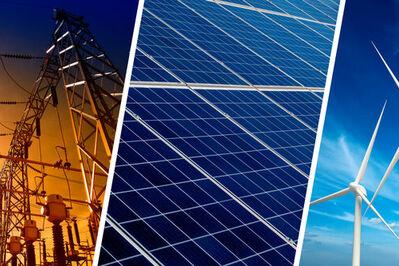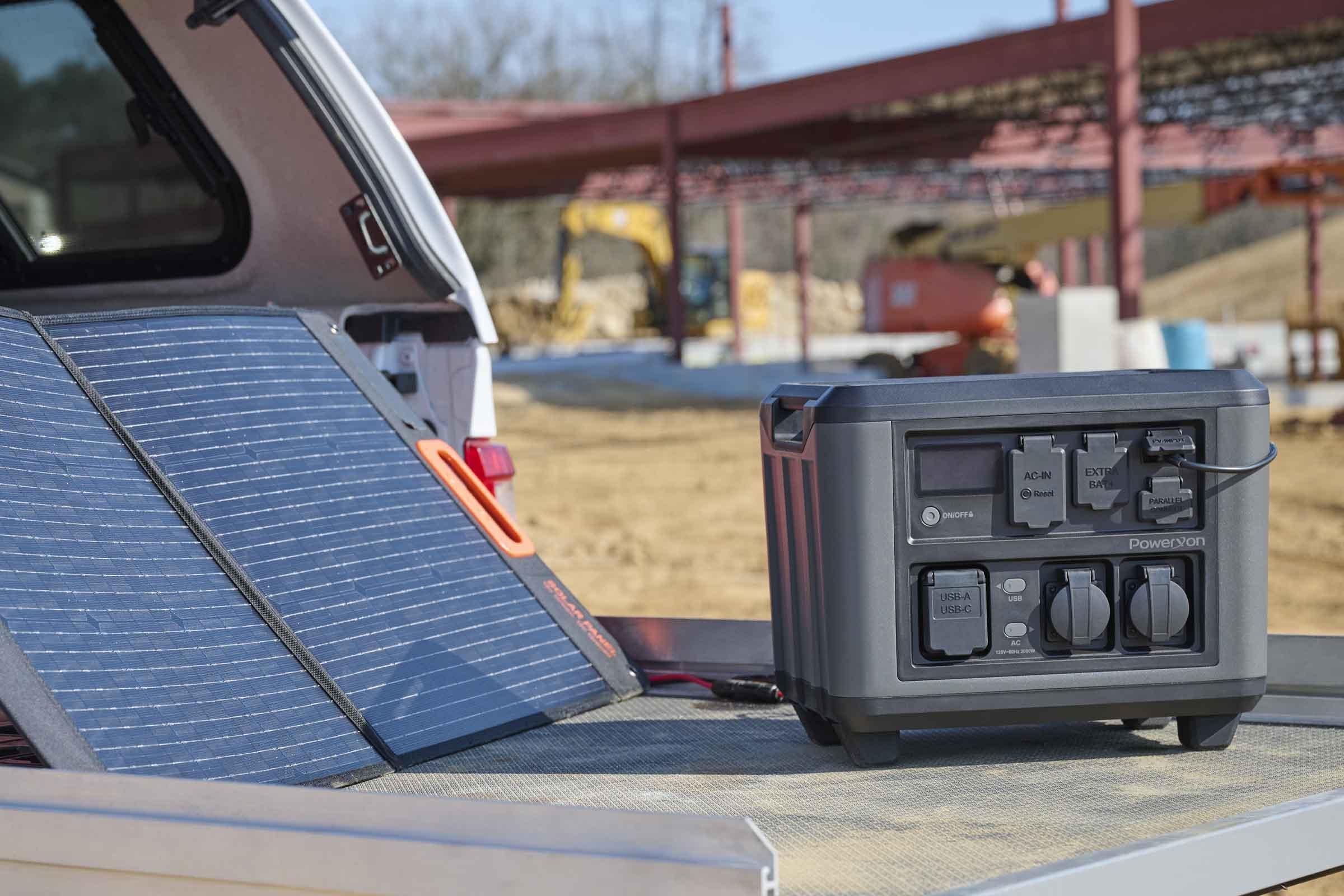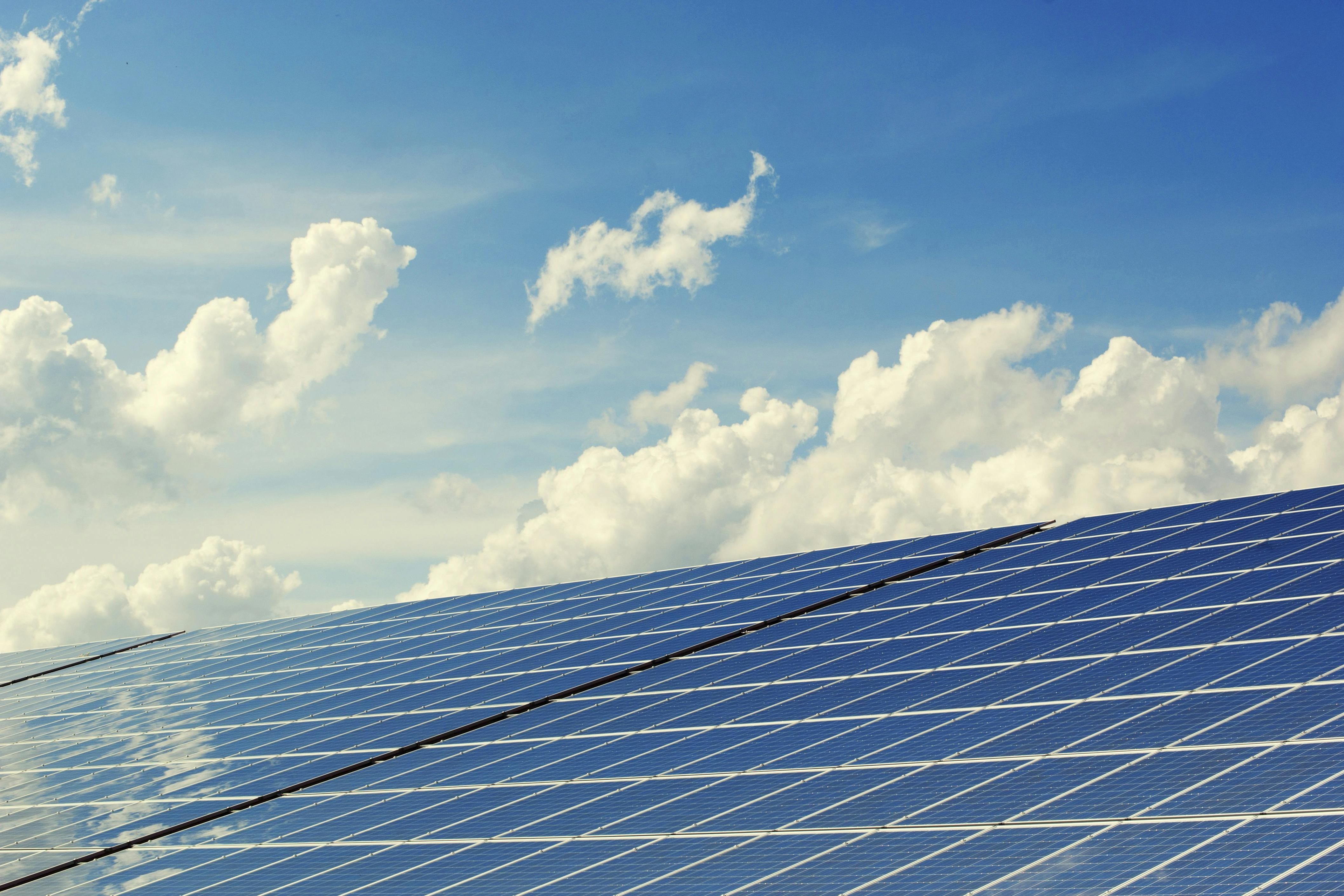As the world continues to grapple with environmental challenges and the need for sustainable development, renewable energy has come to the forefront as a key solution. PowerXon, a provider of innovative solar generators and power systems, understands the importance of renewable energy in shaping the future of energy consumption. But before diving headfirst into adopting these technologies, it's important to weigh the advantages and disadvantages.
In this article, we'll explore 12 important pros and cons of renewable energy that are essential to consider, whether you're thinking about residential use, business applications, or industrial needs such as construction.

The Pros of Renewable Energy
1. Environmentally Friendly
One of the strongest arguments for renewable energy is its minimal environmental impact compared to fossil fuels. Renewable energy sources like solar, wind, and hydroelectricity produce little to no emissions, helping reduce air pollution and combat climate change.
- Solar Energy: Solar panels capture energy from the sun without emitting pollutants into the atmosphere.
- Wind and Hydro: Similarly, wind turbines and hydroelectric plants generate clean energy without the harmful emissions typical of coal or gas plants.
2. Inexhaustible Supply
Renewable energy sources are, by nature, limitless. The sun, wind, and water are continually replenished, making them sustainable long-term energy solutions. Unlike fossil fuels, which will eventually run out, renewable energy is a resource we can depend on indefinitely.
- Solar and Wind Energy: Solar and wind power are abundant, and harnessing them can meet energy demands far into the future.
3. Energy Independence
For countries, businesses, or even individuals, renewable energy offers a chance for energy independence. Solar panels, wind turbines, and other renewable systems can reduce or eliminate reliance on foreign energy imports, stabilizing economies and offering more control over energy resources.
- PowerXon Solar Generators: Our portable solar generators are designed to give industries like construction the ability to power tools and machinery without relying on traditional energy sources.
4. Job Creation
The renewable energy sector is a growing industry, and with that comes an increase in job opportunities. From the design and manufacturing of solar panels to the maintenance of wind farms, millions of jobs have been created worldwide.
- Construction Jobs: Building renewable energy infrastructure, like solar and wind farms, requires a skilled labor force, creating opportunities for employment in many regions.
5. Reduced Energy Costs Over Time
Although the initial setup cost for renewable energy systems can be high, the long-term savings are substantial. Once a solar panel system or wind turbine is in place, the cost of generating energy becomes extremely low.
- Solar Generators: PowerXon solar-powered solutions can lower long-term operational costs for businesses by reducing or eliminating energy bills.

6. Technological Innovation
The rise of renewable energy has driven significant technological advancements. Batteries, for instance, have become more efficient, allowing for better energy storage, and solar panels have become more affordable.
- LiFePO4 Battery Technology: PowerXon uses LiFePO4 batteries in its generators, offering a long lifecycle of over 6,000 charges, making renewable energy solutions more viable for long-term industrial use.

The Cons of Renewable Energy
While renewable energy presents many advantages, it also has its share of challenges. Let's look at some of the key drawbacks to consider.
1. High Initial Costs
The initial investment in renewable energy systems can be prohibitively high. While the costs have decreased over time, installing solar panels, wind turbines, and other systems still requires a significant upfront expenditure.
- Solar Panel Installation: For residential and business customers, the cost of purchasing and installing solar panels is a barrier, even though long-term savings are substantial.
2. Energy Storage Challenges
Renewable energy sources like solar and wind are intermittent, which means energy storage is a critical issue. The sun doesn't always shine, and the wind doesn't always blow, so effective storage solutions are needed to ensure a constant power supply.
- Battery Costs: Large-scale storage solutions are still expensive. Although PowerXon's generators come with reliable battery technology, scaling up for large grids can present challenges.
3. Intermittent Energy Production
One of the key challenges with renewable energy is that it's not always available when needed. Solar panels don't generate electricity at night, and wind turbines don't produce power when the wind is calm.
- Grid Stability: For energy grids to fully adopt renewable energy, they must integrate storage solutions or backup power from traditional sources during times when renewables aren't generating enough power.
4. Geographic Limitations
Renewable energy resources aren't equally available everywhere. Solar energy is most effective in sunny regions, while wind power works best in windy locations. Hydropower is limited to areas with abundant water resources.
- Location Challenges: Not all construction sites, for instance, will have ideal conditions for solar or wind power. In these cases, traditional energy sources might still be necessary.
5. Environmental Concerns
While renewable energy is much cleaner than fossil fuels, it's not entirely without environmental impact. Large wind farms can pose risks to bird populations, and hydroelectric dams can disrupt aquatic ecosystems.
- Land Use: Large solar and wind farms require significant land areas, which could otherwise be used for agriculture or conservation.
6. Resource-Intensive Production
The production of renewable energy technology, such as solar panels and wind turbines, requires materials like rare earth metals, which need to be mined. The extraction of these materials can have environmental and social consequences.
- Manufacturing Impact: The process of producing solar panels, batteries, and wind turbines involves energy-intensive manufacturing, which can offset some of the environmental benefits during the operational phase.
Conclusion
Renewable energy is a crucial component of our sustainable future. While it offers many benefits, such as lower emissions, energy independence, and job creation, there are also challenges to overcome, including high initial costs, intermittent energy production, and storage limitations. At PowerXon, we are committed to harnessing the power of renewable energy in ways that are practical and sustainable for industries like construction and beyond.
Whether you're a homeowner, a business, or part of an industrial operation, understanding the 12 key pros and cons of renewable energy will help you make informed decisions about integrating renewable energy into your operations. PowerXon's solar generators are designed to provide efficient, long-lasting energy solutions, ensuring that you're prepared for the future, no matter the challenges.


